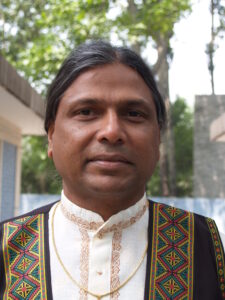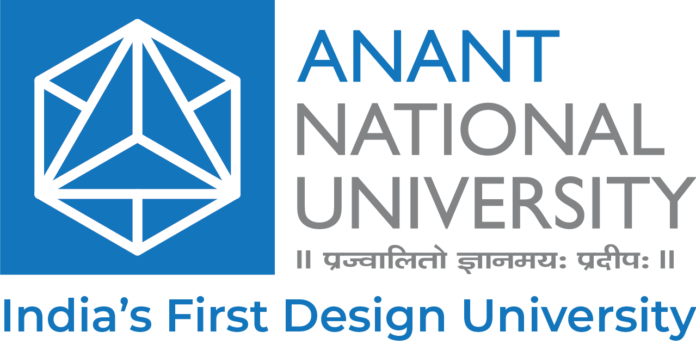Indigenous Peoples and Towards a New Social Contract Anant National University
UNESCO Chair on Inclusive Museums and Sustainable Heritage Development, International Centre for Inclusive Cultural Leadership (ICICL), Anant National University in partnership with Indira Gandhi Rashtriya Manav Sangrahalaya (IGRMS), Ministry of Culture, Government of India conducted a Symposium promoting the UN World Indigenous Peoples Day 2021 on Indigenous Peoples and Towards a New Social Contract. Indigenous experts spoke: Ms. Bibitha S. from the Kadar community in Kerala on Sustainable Development; Dr. Charisma K. Lepcha, Assistant Professor, Sikkim University, on Anthropological Perspectives; Mr. N. Shakmacha Singh, Museum Associate, IGRMS Bhopal, on Museological Approaches; and Ms. Lisa Lomdak, Assistant Professor RG University, on Linguistic and Language Imperatives. The Symposium was moderated by the UNESCO Chair on Inclusive Museums and Sustainable Heritage Development, Prof Dr. Amareswar Galla, UN expert on Indigenous concerns and SDGs
Promoting the occasion of World Indigenous Peoples Day 9th August 2021

Important Announcement – EasyShiksha has now started Online Internship Program “Ab India Sikhega Ghar Se”


The symposium recommended six action points:
1. Focus on Language Heritage – If we want to safeguard the indigenous knowledge of tribal communities, we need to do it in the language of the communities. Their mother tongue/first language is the language in which the first voice of the people can be safeguarded. It is critical for the sense of place and identity of people. No culture, no language is frozen in time. They keep evolving.
Understanding language heritage through research, promoting language development, and maintenance through policy is critical. We are not very good at language maintenance. We need to advocate for it. We need to research and understand the complexity. We are multilingual. We can be fluent in our indigenous mother tongues but also be fluent in other languages.
2. Platform for Professional Development – How do we create a platform for the professional development of public servants, heritage professionals, anthropologists, especially younger scholars, linguists, or researchers from other disciplines? Can we create a forum? We are scoping it under the UNESCO Chair on Inclusive Museums, Anant National University in partnership with Kalady University, RG University, Central Tribal University, and IGRMS on creating such a forum.
3. Ethics of Engagement – Can we look at the Code of Ethics from various disciplines in our countries? How can we further make them appropriate, respective, inclusive, treating indigenous people as equals? Can these Codes of Ethics be translated into languages other than English or the mainstream languages?
Top Courses in Software Engineering
4. Responsible Tourism in a Post Pandemic World – Tourism before the pandemic was the biggest growth industry in the world for almost 18 years. During the pandemic, tourism was almost dead in many parts of the world. Now the priority is rehabilitating tourism in a post-pandemic world. The sooner higher vaccination rates, the sooner they can open up to tourism and trade. So what does tourism mean in a post-pandemic world? What is Responsible Tourism? What of the indigenous people?
AnantU will focus on Built Environment and Design, but there will also be a strong emphasis on indigenous perspectives. The institute has a Professor from Nigeria who was the head of the Department of Tourism at the University of Africa, who joined this week. She assists in coordinating discussions nationally on ethics, considering indigenous people on cultural and heritage tourism.
5. Advocacy with UNESCO – How can we use as a framework the 2007 UN Declaration on the Rights of the Indigenous People? How can we use the Shillong Charter? How can we use the facility of the Constitution in India for example to develop more engaging partnerships? How can we advocate with UNESCO so that the 2003 convention for Safeguarding Intangible Heritage puts more emphasis on Indigenous Intangible Heritage and issues associated with it?
6. Reconciliation as a way forward – We need to work out models when we talk about inclusion. Let’s not work on binaries. Let’s not say this is indigenous and this is the other. It perpetuates the self and the other paradigm which doesn’t help anyone. We want to learn to work together through reconciliation. There have been historic wrongs. We recognize them. We go for reconciliation approaches like Australia has. We have to work together because whatever is called the mainstream must be very diverse culturally and linguistically. That mainstream needs to include indigenous peoples.
Kindly let me know if you need anything else!
Empower your team. Lead the industry
Get a subscription to a library of online courses and digital learning tools for your organization with EasyShiksha
Request NowQ. Are EasyShiksha's internships truly free?
Yes, all internships offered by EasyShiksha are completely free of charge.
Q. How can I apply for an internship with EasyShiksha?
You can apply by visiting our website, browsing available internships, and following the application instructions provided.
Q. What types of internships are available through EasyShiksha?
EasyShiksha offers a wide range of internships across technology, business, marketing, healthcare, and more. Opportunities are continuously updated.
Q. Will I receive a certificate upon completing an internship?
Yes, upon successful completion, you will receive a certificate recognizing your participation and achievements.
Q. Are EasyShiksha's internship certificates recognized by universities and employers?
Yes, the certificates are recognized by universities, colleges, and employers worldwide.
Q. Is the download of certificates free or paid?
Access to internships and courses is free, but there is a small fee to download certificates, covering administrative costs.
Q. When can I start the course?
You can choose any course and start immediately without delay.
Q. What are the course and session timings?
These are fully online courses. You can learn at any time and pace. We recommend following a routine, but it depends on your schedule.
Q. What will happen when my course is over?
After completion, you will have lifetime access to the course for future reference.
Q. Can I download the notes and study material?
Yes, you can access and download course materials and have lifetime access for future reference.
Q. What software/tools would be needed for the course?
All necessary software/tools will be shared during the training as needed.
Q. I’m unable to make a payment. What should I do?
Try using a different card or account. If the problem persists, email us at info@easyshiksha.com.
Q. Do I get the certificate in hard copy?
No, only a soft copy is provided, which can be downloaded and printed if required.
Q. The payment got deducted but shows “failed”. What to do?
Technical errors may cause this. The deducted amount will be returned to your account in 7-10 working days.
Q. Payment was successful but dashboard shows ‘Buy Now’?
Sometimes payment reflection is delayed. If it takes longer than 30 minutes, email info@easyshiksha.com with the payment screenshot.
Q. What is the refund policy?
If you face technical issues, you can request a refund. No refunds are issued once the certificate has been generated.
Q. Can I enroll in a single course?
Yes, select the course of interest, fill in the details, make payment, and start learning. You will also earn a certificate.
Q. My questions are not listed above. I need further help.
Contact us at info@easyshiksha.com for further assistance.
ALSO READ: jiva-ayurveda-organises-jiva-health-week-a-free-health-consultation
Get Course: Mobile-Apps-Development-using-React-Native




































































